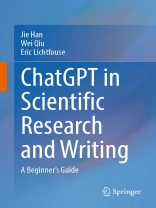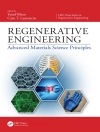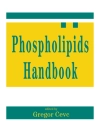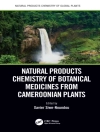Most scientists are constantly under pressure for reading essential literature, designing new experiments, writing successful proposals and papers, and meeting deadlines. However, imagine that your brain is connected to the entire human knowledge and can extract instantly essential information for discovery. Imagine that research tasks that took days to months can now be done within few seconds. This is not science fiction anymore since the onset of generative artificial intelligence tools such as Chat GPT. This book explains concisely and simply how to use Chat GPT for identifying new results, crafting titles, editing language, interpreting figures, creating visuals, and refining methods. Chat GPT even allows for brainstorming, designing experiments, writing proposals, responding to reviewers, and evaluating research papers. Written for researchers with no background in coding or prompt engineering, this book provides the skills necessary to navigate the changing landscape of scientific research. In particular, you will learn how to leverage Chat GPT’s unique capabilities to generate ideas, streamline literature reviews, and craft compelling narratives. In short, this book empowers you to unlock the potential of Chat GPT, boosting productivity, and take your scientific research and writing to new heights.
Содержание
.- Introduction.
.- Extracting key points or specific information from research papers.
.- Interpreting figures and correlating to specific conclusions.
.- Evaluation of research papers.
.- Spotting errors.
.- Responding to reviewer comments.
.- Advanced language editing.
.- Crafting article titles.
.- Design of experimental studies.
.- Design of public surveys.
.- Writing research proposals.
Об авторе
Jie Han is professor of environmental sciences at Xi’an Jiaotong University, China. She graduated from Xi’an Jiaotong University in China and The University of Auckland in New Zealand. Her research interests focus on environmental pollution and public health, big data analytics, and artificial intelligence-assisted design and synthesis of novel compounds and polymers. She serves as the co-chief editor of the journal Environmental Chemistry Letters and an editorial board member of Ecotoxicology and Environmental Safety, Animal Diseases.
Wei Qiu is the founder of Guyiheng Technologies, a fast-growing national high-tech enterprise in China developing artificial intelligence and big-data applications for science and engineering. He graduated from Xi’an Jiaotong University with a bachelor’s degree in chemical engineering, and a master’s degree of science in engineering from the University of New Brunswick in Canada. He worked as an Engineering New Zealand-accredited environmental engineer at the New Zealand branch of WSP, the first-ranked international engineering consultancy firm by Engineering News-Record (ENR).
Eric Lichtfouse is professor of scientific writing and environmental chemistry at the International Research Centre for Renewable Energy, State Key Laboratory of Multiphase Flow in Power Engineering, Xi’an Jiaotong University, China. He is co-chief editor and founder of the journal Environmental Chemistry Letters, and has published the book Scientific Writing for Impact Factor Journals. He has initiated a new discipline, single sample molecular chronology, that uses molecular clocks to study the history of organic compounds in complex media. He has done research in France, Germany, the USA and China. His research focus on complex organic matter.












